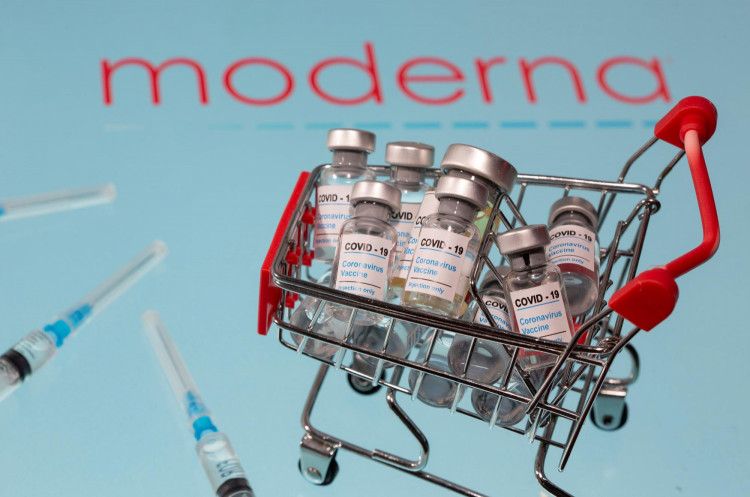Moderna, once a shining star in the pharmaceutical industry for its rapid development of COVID-19 vaccines, is now facing a tough reality. The company's stock took a significant hit following downgrades from major Wall Street firms, triggered by the announcement that it will delay its break-even profitability and scale back its research and development (R&D) investments.
The biotechnology company, which became a household name during the pandemic, is now grappling with the aftermath of declining COVID-19 vaccine sales. Moderna's revenue from these vaccines has plunged, forcing the company to reassess its financial strategies. As a result, both JPMorgan and Jefferies downgraded the stock, sending its shares plummeting more than 12% in Thursday's trading.
JPMorgan downgraded Moderna's stock from Neutral to Underweight and slashed its price target from $88 to $70. Jefferies followed suit, lowering its rating from Buy to Hold and cutting its price target from $120 to $65. The primary concern cited by both firms was Moderna's revised profitability timeline. The company now anticipates reaching break-even profitability by 2028, two years later than previously projected in 2026.
Moderna's CEO, Stéphane Bancel, acknowledged the challenges ahead, stating that the company plans to "slow down the pace of new R&D investment and build our commercial business." The company intends to reduce its annual R&D expenses from $4.8 billion in 2024 to between $3.6 billion and $3.8 billion by 2027. This reduction includes shelving several key vaccine projects that were initially part of Moderna's ambitious pipeline.
The biotech firm had hoped to leverage its early success with COVID-19 vaccines to create a sustainable pipeline of future products. It still expects to secure approval for 10 new vaccines over the next three years, including a combination flu-COVID vaccine. However, the pace of development has not been fast enough to offset the decline in COVID vaccine sales, which accounted for a 43% drop in Moderna's second-quarter revenue, totaling $241 million.
The downgrades and reduced profit outlook reflect a broader shift in the pharmaceutical industry's focus. During the height of the pandemic, developing a COVID-19 vaccine was a surefire path to financial success. Moderna, like many others, reaped substantial rewards during that period. However, the industry's priorities have since shifted, with significant attention now being paid to other lucrative markets, such as weight-loss medications.
Companies like Eli Lilly and Novo Nordisk have seen their fortunes rise with the growing demand for anti-obesity drugs. Eli Lilly, for example, recently announced an $800 million investment in an Irish factory to boost production of its GLP-1 anti-diabetes and anti-obesity treatments. These developments highlight the rapid evolution of the pharmaceutical landscape, where yesterday's breakthrough can quickly become today's standard.
Moderna's stock, which reached an all-time high above $449 per share in September 2021, has since tumbled, erasing nearly $170 billion in market value over the past three years. The company's recent struggles underscore the volatility of the biotech sector and the challenges of sustaining momentum after an initial breakthrough.





